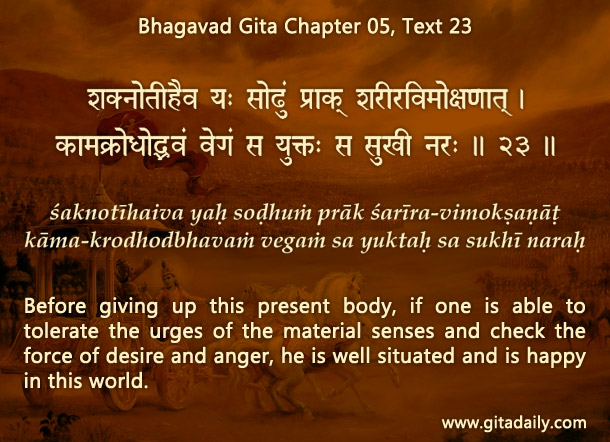Suppose a thief is trying to barge into our house by breaking the door. Suppose further that the door has a loose bolt that we need to physically hold in place. Suppose also that the door is too strong for the bully to break. If we just hold the bolt in place, they will eventually become exhausted and quit.
To not get intimidated, we need to remember that our confrontation with the thief is a test of patience, not power. We don’t have to be stronger than them; we just have to wait longer than them.
Our lower urges are like such a thief that we need to outwait, not outweigh. When those urges hit us, they can feel so strong as to be utterly overwhelming. But they can’t overwhelm us unless they enter into our consciousness. To enter, they need to get our attention. Indeed, the door to our consciousness is our attention. Many urges appear at the periphery of our consciousness but can’t advance any further unless they get our attention.
Unfortunately, we often leave loose the bolt to the door of our consciousness. That is, we aren’t always attentive about what we are paying attention to. Consequently, without our wanting or knowing, some urges can catch our attention. To keep them out, we need to consciously hold the bolt in place. That is, we need to carefully choose what we give our attention to.
When encountering an unhealthy urge, we can consciously redirect our attention elsewhere, preferably toward the all-attractive supreme, Krishna. Then, the urge may keep battering at the door of our consciousness, but it will be rendered powerless. Pertinently, the Bhagavad-gita (05.23) assures that if we tolerate our urges, our consciousness will gradually become satisfied and spiritualized.
Think it over:
- How are our urges like a bully?
- Why can’t our urges break the door to our consciousness?
- Do you become intimidated by your urges? How can you out-wait them?
***
05.23 Before giving up this present body, if one is able to tolerate the urges of the material senses and check the force of desire and anger, he is well situated and is happy in this world.
To know more about this verse, please click on the image
Explanation of article:
Podcast:


JAPA controls all your URGES